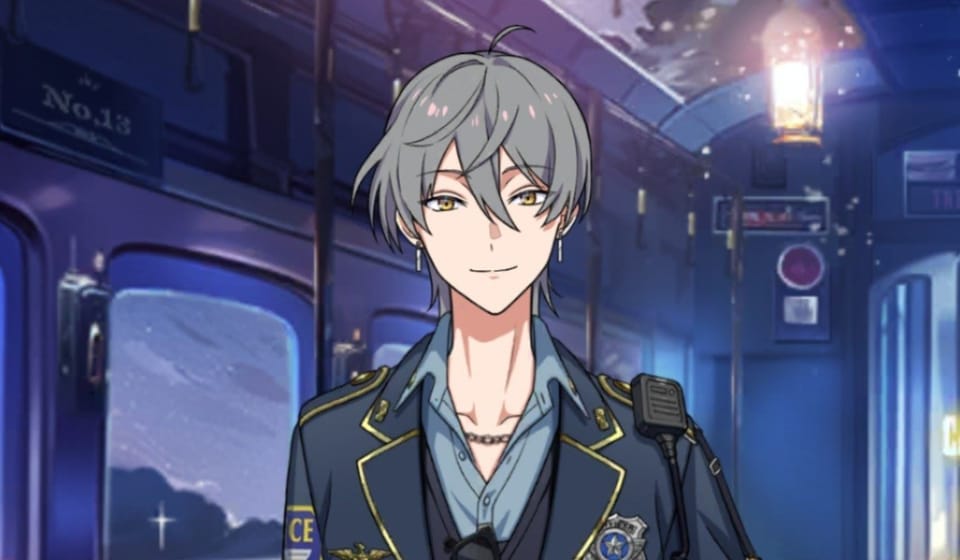Why You Can Write Depressing Shit That Feels Good (In Fiction)
When dark stuff feels satisfying

It’s weird, but I felt so much joy in writing sad endings for my characters lately.
That makes no sense, right? But in some cases, it’s possible to write something devastating yet delightful.
Here’s my example to illustrate this.
I was writing a choose your own adventure story in the dark thriller genre. In one of the branches, the protagonist (the character you play as the reader) gets into an affair.
Their partner finds out, but instead of just getting mad, they request that they open up the relationship. So the protagonist gets to keep seeing their affair partner, while their (primary) partner gets to see someone else.
To be clear, this is not a portrayal of a healthy polyamorous relationship, nor a healthy relationship period.
Yet, there’s something satisfying about the tragedy. We watch the partners drift apart. And seeing their paramours only makes it easier for them to avoid their marital problems.
Soon, our protagonist can’t take it anymore and requests a divorce. They’re heartbroken when their partner agrees with a calm and cool smile, as if they can’t be bothered to fight for their marriage.
After their divorce, the protagonist drowns themselves in alcohol. They even stop seeing their affair partner, as they felt like he was the cause of their grief. But deep down, they knew that they only had themselves to blame.
Thus, the affair partner finds another hot young thing to fuck, and the protagonist thinks that everyone dumps them like overnight trash.
From then on, our protagonist keeps dating and hooking up with people, but nothing can satisfy the ache. People tend to find them very attractive at first, but soon lose interest when they realize how empty and soulless they are.
At least strangers still find them sexy, but none of them care about the protagonist as a person. Not that they have the faith to let anyone in anymore.
This is such a bleak story, right?
Yet, there’s something so primal about this tale that I love. Here are some reasons why it can be gratifying to read and write depressing stories like this:
It’s super relatable
Most people can relate to being lonely, craving connection, and trying hard to find a soulmate.
Some people find us attractive at first, only to lose interest and dump us afterwards. Similarly, you might relate to finding people who want to fuck you, but don’t give a shit about you as a person.
Relationships always hit a nerve
Humans are social animals.
We’re hardwired to care about relationships. Sure, some readers are more intrigued by relationships than others.
But because social bonding is such a central part of human life, sad stories about relationship distress, will hit a primal nerve automatically.
Even in a platonic sense, everyone wants to feel loved, cared for, and be emotionally close to someone. It’s such a basic need to belong somewhere and have safe people to connect with.
So when we read about a character who keeps trying and failing to find someone who cares about them, it wrenches at our hearts.
Loneliness is compelling
A great appeal of this story, is the theme of loneliness.
We all feel lonely at some point in our lives. It’s such a deep-rooted source of sorrow for people, that it feels satisfying to touch into this grief. And in the safety of fiction, too.
In fact, there’s something delicious about indulging the saddest and darkest parts of yourself.
We all love dark shadows
Speaking of getting to the saddest and darkest parts of yourself, it’s like getting into our Shadow Self.
The Shadow Self is a term from Jungian psychology. This is the part of you that’s scorned and hated. It’s not “bad” per se, but rather, it’s a mountain of needs and desires you’ve neglected and shunned.
And because these parts of you have been shunned, they “rebel” and warp into something destructive or unhealthy.
The need for companionship and emotional connection is benign, for instance. But it could show up in maladaptive ways, such as going on one-night stands indiscriminately if you actually want a long-term relationship.
To be clear, there’s nothing wrong with casual sex if that’s what you genuinely want. But if you have casual sex for the sake of avoiding what you really desire, or as an “approximation” of what you want, of course you’ll always be dissatisfied and unhappy.
It is such a human thing to avoid doing the hard thing and do an easier thing that approximates what you truly want, however. So even though it’s sad, it’s also gripping and is something most of us can empathize with.
It’s stark and bold
A final reason that this depressing story could be engrossing, is because it’s so naked and bold.
We don’t try to pretend that there’s anything more glamorous than a lonely human desperately trying to ease their pain.
In our polite society, there are things we either keep under wraps, or sugarcoat to make it sound less shocking, horrifying, or depressing.
But in this case, there was no hiding or softening of anything. We dove right to the bottom of the well and stayed there.
There’s something exciting about being so blunt and blatant about the truth of what’s happening.
We wish that this human weren’t suffering the way they are, but we’re not going to lie and make their situation sound better than it is, either.
When is a depressing story simply crushing and not satisfying?
Here are some caveats to the example I used above.
It’s a choose your own adventure story, which means that this is only one possible outcome. Yes, most endings in choose your own adventures are sad, but there’s still the reassurance that this is not destiny. You can choose a different path and get a happier fate.
Also, I give no names to either the protagonist or their partner. We don’t even know their genders. Though we know the protagonist is bisexual.
By not knowing their name, you get some distance so the sad feelings don’t drag you down as much.
A smart strategy to make an unhappy story more satisfying to read, is to give warnings or expectations to the reader for tragic endings. For choose your own adventures, we already expect from the genre that most endings will be bleak, so it won’t be a nasty surprise for the reader.
In contrast, I read a short story that sounded, from the blurb and the story throughout, like a romantic comedy with misunderstandings. However, it turns out there was no misunderstanding. The love was truly unrequited.
Many readers, including me, found it heart-shattering. Of course, a writer has the right to pen a tragedy if they wish. But in our modern-day English language stories, readers expect a happy ending by default, especially for love stories.
So if you have a sad ending, it’s best to warn us. For instance, indicate it explicitly in the blurb. One bestselling gay romance author I know, wrote in the blurb of a book that this does not end in a happily ever after. He still sold many copies of his book, so the disclaimer did not hurt his sales.
If you do not wish to use a disclaimer in the blurb, I recommend doing something throughout the story to make it obvious that the tale won’t end happily.
How to give a good warning without a disclaimer
One great example I’ve seen, is a story where the guy repeatedly cheats on his wife with no remorse. Not to mention that he’s emotionally abusive in general. It’s more than obvious that the heroine and her husband will not become a happy couple in the end.
The novel, though beautifully told, has a certain gloom and despair throughout. So you won’t expect anything good to happen at the end.
Now here’s an unfortunate example where there was no warning of the tragedy.
This was a bestselling novel that was made into a movie. I hated it. Not because the writing was bad, but because the story throughout felt like a romance with a happy ending. Yet the ending was a depressing one…I won’t say what happens, since you might figure out which book I’m talking about.
It was like the author was toying with our feelings. I felt like I wasted my time reading that long romantic buildup, only to be smacked in the face by the devastating ending.
Later, I learned that the book had a sequel. I read some book reviews beforehand this time. The reviewers warned us not to expect anything happy to happen, since only xyz events occur, and it’s ultimately a letdown.
With those warnings in mind, I actually enjoyed the sequel much more than the famous first book. For the sequel, I was already prepared to be sad and stay sad. So I had no hopes to begin with, and could get into the story and artistry itself.
It felt like a masochistic read, to be honest. But I found pleasure in this, because it was an intentional grief and despair. As opposed to expecting happiness and not getting any.
So what now?
Now that we’ve analyzed why some depressing stories can appeal to people, as well as what can make a sad story unsatisfying, what do we do with this information?
First of all, we can keep in mind these factors:
- relationship focus
- reliability
- loneliness theme
- deep dive into the dark side
- stark bluntness
When you have some or all of these factors, you have a backbone for a story that is captivating to read and write, even if we don’t get a happy ending.
This doesn’t mean it’s impossible to write a riveting story without these elements, of course. But I would at least aim for relatability.
If the reader can’t relate at all to your protagonist, it can be alienating and hard to care about them.
Relationships and loneliness aren’t the only human experiences you can write about. But it would be a missed opportunity if you never touch on these themes in any of your stories!
Just make sure you build in warnings or expectations for your readers, so that they can expect a sad ending and not get an awful surprise.
How about you? Are there depressing stories you enjoyed, whether as a reader or writer? What made the story satisfying for you?
If you want help to write stronger, more compelling fiction, let’s connect!



